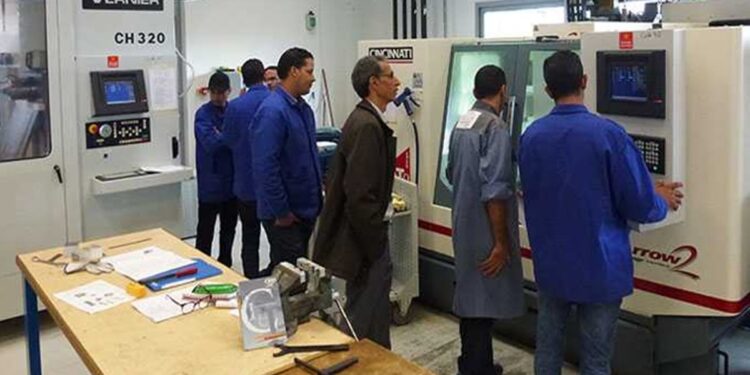The new vocational training session 2025-2026 starts this Wednesday, September 17, in all Tunisian centers. According to Ilyes Cherif, Managing Director of the Tunisian Professional Training Agency (ATFP)this year marks a turning point with the introduction of new specialties and an increase in available places of approximately 10 % compared to the previous session. More than 400 specialties will be offered to 45,000 traineesspread over 136 centers across the country.
Despite these advances, the question of the integration of young graduates remains central to judge the real efficiency of the system.
Evolution of the offer and modernization of centers
According to Ilyes Cherif, ATFP concentrated its efforts before the launch of the fall session on:
- There Infrastructure modernization : dormitories, kitchens and training centers have been improved to provide better conditions to trainees.
- There Digitalization of inscriptions and paymentsnow accessible entirely online to facilitate access for young people.
Comparison on last four years ::
| Year | Places | Specialties | Centers | Insertion rate |
|---|---|---|---|---|
| 2022 | 41,000 | ~ 380 | 132 | 65 % |
| 2023 | 42,000 | ~ 390 | 134 | 66 % |
| 2024 | 41,000 | ~ 395 | 135 | 68 % |
| 2025-2026 | 45,000 | > 400 | 136 | 70 % |
This progression reflects a Qualitative and quantitative strengthening of the training system, with better adaptation to the needs of trainees and the labor market.
Professional integration: encouraging but nuanced figures
Also according to Ilyes Cherif, Tunisian vocational training displays a 70 % insertion rate For his graduates. The majority find a job, often in the sectors where demand is strong.
However, certain realities persist:
- Unemployment of graduates graduates : According to the National Institute of Statistics (INS), the unemployment rate of higher education graduates was 23.5 % in the first quarter of 2025, with specific rates of 13.6 % in men And 30.7 % in women. (National Institute of Statistics,).
- Informal job : A study by the Tunisian Institute for Strategic Studies (ITES) considered that the employment rate in the informal economy in Tunisia was 44.8 % (Ites).
These figures show that if vocational training is progressing, it is not yet completely aligned with the real needs of the labor market.
International opportunities
Ilyes Cherif also underlines that the ATFP has signed several international agreements With France, Italy, Germany and Canada. These partnerships offer:
- Of the Employment opportunities abroad For some graduates.
- A Development of Tunisian skills on international markets.
However, the number of graduates benefiting from these opportunities remains limited, which highlights the need to strengthen links with the local private sector and growing sectors.








